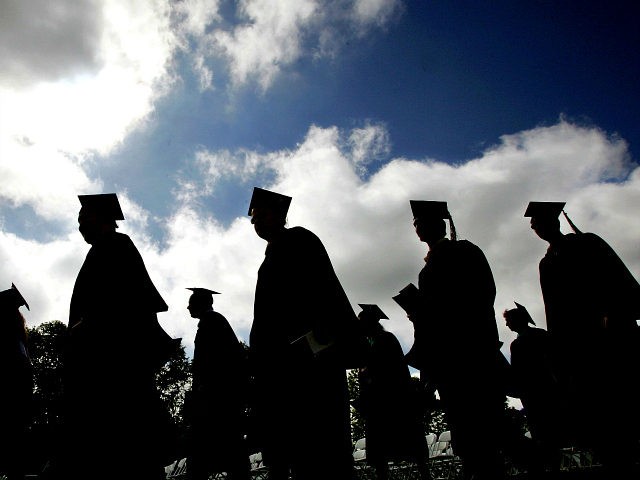A college student at Salve Regina University was allowed to graduate after school investigators found him “not responsible” for the rape accusation made against him by a female student.
The two internal school investigators at the small, Catholic school in Newport, Rhode Island, found “John Doe” “not responsible” for the alleged rape just five days prior to graduation.
“Up until that point, he didn’t know if he was graduating,” said Doe’s attorney, John R. Grasso, according to a report at Newportri.com.
Doe’s accuser claimed he raped her after driving her home one night in March. The accuser reportedly said Doe attempted to choke her to the point that she could not breathe. Doe discovered a complaint had been filed against him at school four days later.
In May, before he knew the outcome of the internal school investigation, Doe filed a federal lawsuit against Salve Regina, the first student accused of sexual assault to sue the school. The news report stated Doe claimed the two internal investigators evaluating the rape charge against him were improperly trained, though they essentially served as prosecutor and judge in the case against him. According to the report, Doe had no opportunity to cross-examine either the female student who accused him of the rape or a key witness.
Grasso sent a notice to J. Malcolm Smith, Salve’s interim vice president for student affairs and Dean of Students, who also serves as the school’s Title IX coordinator, on March 30, requesting a hearing with witnesses but said he received no response.
Newportri.com reported:
In early April, both investigators interviewed John Doe in the downstairs conference room of the university chapel. Grasso said he was allowed to accompany his client at the interview, but not speak with investigators.
“I have to be the potted plant in the room,” Grasso said. “He can ask me questions and I can speak to him, but I’m not allowed to speak with the investigators. It’s ridiculous. It’s so inefficient.”
When the school investigators completed an initial report, Grasso requested a copy but was denied. He reviewed the report in person and took notes.
“It’s not the university’s job through a process to please people,” said Smith. “It’s to determine the facts and to determine whether the facts lead to find a violation or it doesn’t.”
The federal lawsuit was dismissed June 14 when it was no longer an issue because Doe had been told he was found “not responsible” for the alleged rape and that he would be able to graduate.
When Doe’s accuser and other female students organized a demonstration about campus sex assault via social media — held on the Sunday morning of commencement — Grasso said Doe grew worried he would be at the center of a protest.
Smith said school security guided the female students away from the commencement site.
Doe, who hails from New Jersey, is one of a growing number of male college students in the United States who have been accused of sexual assault and claim their schools conducted investigations into the charges against them without due process.
Grasso said he represented a dozen clients involved in Title IX sexual assault investigations at Rhode Island schools during the past year, double the number he had the previous year.
In November, Education Secretary Betsy DeVos released a long-awaited proposed Title IX rule, calling for a “presumption of innocence throughout the grievance process,” as well as “written notice of allegations and an equal opportunity to review all evidence collected.”
The new rule would also allow both parties to have the right to cross-examination and would define sexual harassment as “unwelcome conduct on the basis of sex that is so severe, pervasive, and objectively offensive that it effectively denies a person equal access to the school’s education program or activity.”
Alleged incidents of sexual misconduct would only be investigated if they occurred on campus or during a school-sponsored event, according to the proposed rule.
Under a 2011 Obama-era policy, students accused of sexual misconduct were often denied the ability to cross-examine their accuser and to have access to the alleged evidence against them. Critics of the policy referred to the internal school investigations as “kangaroo courts.”
The Obama administration also used a false statistic — “one in five” women experience sexual assault in college — that was repeated in the mainstream media to promote the narrative that women in college were frequently victims of sexual assault.
According to the Bureau of Justice Statistics, however, a division of the Department of Justice, the actual rate of sexual assault on college campuses is 6.1 per 1,000 students, or .03 in five. The rate of rape and sexual assault for non-students is actually 1.2 times higher than for students — 7.6 per 1,000.

COMMENTS
Please let us know if you're having issues with commenting.